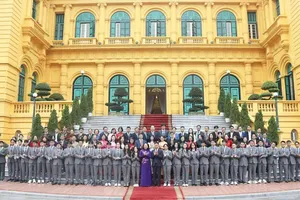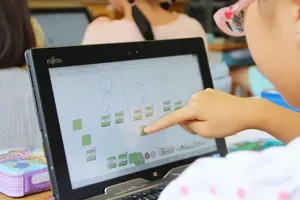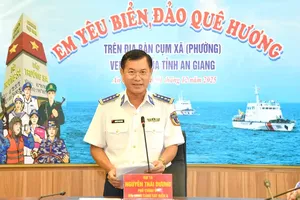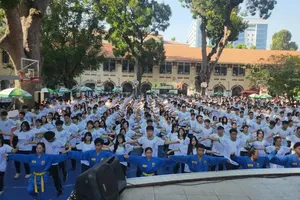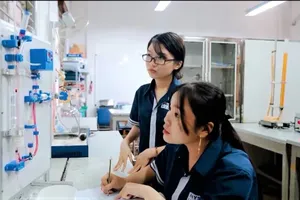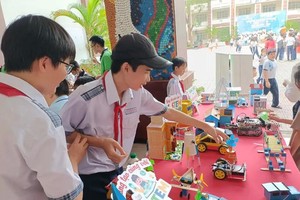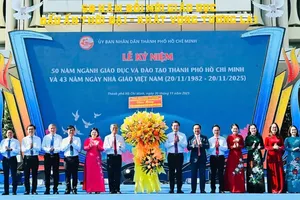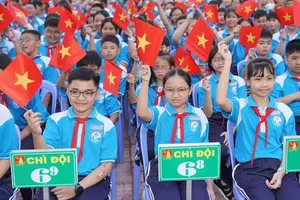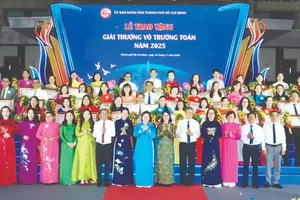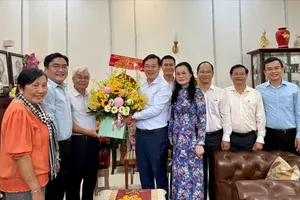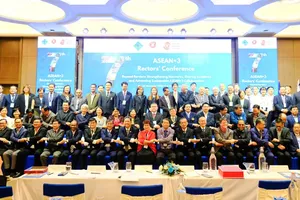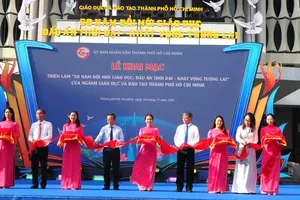
Politburo’s Resolution No. 71, issued on August 22, 2025, signals the Party and State’s determination to position education as the key driver of national development.
A core component of this strategy is the mandate to provide a single, unified set of textbooks nationwide starting from the 2026-2027 school year, with the ambitious goal of making them free for all students by 2030. Educators and policymakers are hopeful that this unified curriculum will maximize educational effectiveness across the country.
Nevertheless, creating a national textbook set in under a year is a monumental task. According to experts involved in past curriculum development, it’s a complex undertaking that will require decisive action, innovative thinking, and a unified effort from all of society’s intellectual resources.
Currently, three main options are on the table.
- Option 1: Compile a completely new set of textbooks, independent of the current ones. The primary advantage here is creating a cohesive and consistent curriculum from the ground up that fully embodies the reforms of Resolution 71. The downside, however, is the sheer scale and complexity of the task, making it almost impossible to complete within a year without significant risks to quality.
- Option 2: Select one of the three existing textbook sets as a foundation and then upgrade it. This approach would save considerable time and money by inheriting a proven structure. The drawback is that the chosen set may have weaknesses in certain subjects, potentially compromising the overall quality of the final unified version.
- Option 3: Cherry-pick the best book for each subject from all of the existing sets to assemble a new, composite curriculum. This method ensures high quality at the individual subject level but risks creating a disjointed final product, lacking a consistent pedagogical philosophy and a smooth progression between grade levels.
Experts agree that regardless of the path chosen, the process must be objective, transparent, and scientific. The ultimate priority, they stress, must be the quality and coherence of the final textbook set, ensuring it fully reflects the spirit of innovation laid out in Resolution 71.

A major point of argument in this debate is the status of the “integrated subjects” introduced in the current curriculum. Principal Ho Tuan Anh of Quynh Phuong Junior High School (Quynh Mai Ward in Nghe An Province) argues that when compiling the new textbooks, these subjects should be de-integrated.
He advocates for splitting “Natural Sciences” back into its component parts of physics, chemistry, and biology. The same should be done for “History-Geography” and “Arts”.
His reasoning is that the current format is more of a “forced assembly” than a true integration. “Schools still teach the components separately, and we lack teachers who are qualified to teach all disciplines within a single integrated subject”, he explained.
'This creates a host of logistical problems with scheduling and assessment, and ultimately leaves students confused when the subjects become separate again in high school.
This view is shared by Assoc Prof Dr Tran Xuan Nhi, former Vice Minister of Education, who believes that integration should not simply mean bundling subjects together.
Meanwhile, Prof Dao Trong Thi, former head of the National Assembly’s education committee, raised the critical issues of author motivation and copyright. “The Ministry of Education and Training needs to consider how to properly compensate authors and respect the copyright of existing books if they are to be adapted”, he noted.
Dr Hoang Ngoc Vinh, former head of the Department of Professional Education under the Ministry of Education and Training, believes a unified textbook set is a crucial step toward ensuring educational equity, giving students from remote, mountainous regions the same access to knowledge as their urban peers. “It also reduces confusion for teachers and eases the financial burden on parents,” he added.
To ensure the new curriculum meets expectations, Dr Vinh insists that the current 2018 General Education Program must first be comprehensively reviewed.
“To rush into writing a new textbook set without fully learning the lessons from the current program risks creating something that lacks a solid scientific foundation,” he warned. He also called for an objective appraisal process, widespread piloting in diverse regions, and the integration of digital learning materials to make education more flexible and affordable.
From another angle, Le Ngoc Diep, former Head of the Primary Education Division (HCMC Department of Education and Training), argued that the new textbooks cannot be “old wine in a new bottle.”
“In a rapidly modernizing nation,” he stated, “the curriculum must be completely and thoroughly innovated. For example, at the primary level, textbooks must be designed for the digital-age student, who is accustomed to audio-visual technology and learns with greater speed and flexibility than ever before.”
